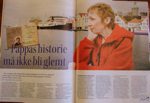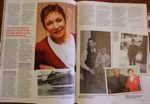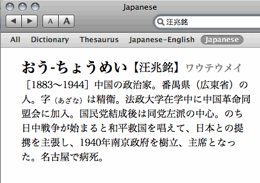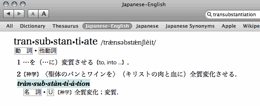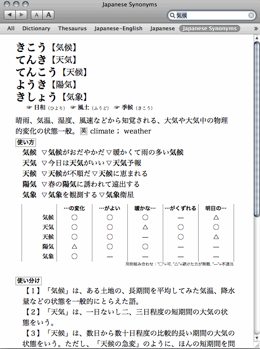Google recently announced its new Knol Project. Quite a number of news articles and many more blog postings have appeared to comment on the launch of the new project.
I’m rather puzzled by a lot of concerns shown by some whose writing on similar issues I usually admire. Further down in this posting, I will respond to some of the critiques of Crooked Timber‘s John Quiggin made in his posting Knols, wikis and reality and if:book‘s Ben Vershbow rough notes on knols.
This new Google project in some ways reminds me of that other competitor of Wikipedia that rarely seems to get mentioned, Everything2. Like the new Knol project, articles at Everything2 are written by single authors and can be rated by community members. There are even Google ads. Like the Knol project, there can be many articles on a given topic, which vary widely in content, length, quality, and often offer completely different kinds of material on similar topics.
It also reminds me of a software project I started designing a few years ago but never got around to writing up (funny how a PhD program can get in the way of one’s amateur programming projects). My plan was to create a history knowledge-base which contained contributed articles, all under a Creative Commons or other similar license, which were rated by the community of readers and which competed directly with other contributed articles on similar topics. The number of points any reader could give was a function of their own “value” in the community as judged by the aggregate point value of their own contributions (in the form of articles and comments). This was not to be pure democracy but a tyranny of meritocracy – a huge difference with Wikipedia but similar in some ways to Everything2. In my own system, the currently “winning” article would be the most prominently listed or displayed article on a topic but might always be replaced with a new better article. The most important feature was this: since all future writers on a topic were free to copy/steal any amount of any previous article new articles could, like Wikipedia articles are supposed to, be small incremental improvements of any previous article. However, unlike Wikipedia but like Everything2, I also wanted to design the system so it encouraged “new narratives” and completely fresh approaches to old topics.
By contrast, in Wikipedia if you decide to completely rewrite a popular and controversial entry on the Nanjing Massacre, which you certainly have the power to do and I have been tempted to do, the chances are your efforts will be completely wasted as you newly written article is completely reverted to whatever chaotic and inconsistent mess prevailed before your arrival. Thus, hidden in the long list of revisions on any popular wikipedia article might lurk alternative narratives that can still be viewed, but only if they are looked for by patient visitors to the site.
Wikipedia is at its core an Enlightenment project.
Its god, NPOV (Neutral Point of View), the very core of its being, is a myth. The policy requires “that where multiple or conflicting perspectives exist within a topic each should be presented fairly” and that views be presented “without bias.” NPOV is a useful myth, and not one that we should spend too much time mocking (especially those of us aspiring to professionalism in academic life), but we should always be conscious of its limits. I think every 6th grade elementary school student of the future should be given an exercise wherein they are given the opportunity to discover how any controversial Wikipedia article one might pick, no matter how well written, not only completely violates NPOV but can never hope to achieve anything remotely close to NPOV. NPOV is impossible. The greatest theoretical challenge of the post-Enlightment world is, “How do we deal with that?”
I think that we must have a strong competitor to Wikipedia which is based on the fundamental idea that we need competing narratives, we need them juxtaposed, we need them competing with each-other, and we need the ability to monitor their changes and popularity across time so that we don’t completely become slaves of the present. This doesn’t mean we have to completely abandon the incremental approach and the amazing power of building upon the work of others, but also allow for easy access to competing approaches to a problem in a single tidy, convenient, and familiar interface. Despite some key innovations, projects like Everything2 have failed to challenge Wikipedia. My own abandoned ideas for a project were half-baked and I have no time to spend in the kitchen.
So what about Google Knol? All we have seen of what it might become is in this single screenshot. It is surely a little early to judge.
John Quiggin of the wonderful group weblog Crooked Timber has looked at the sample article from the screenshot and is not happy with its author centered approach:
As regards simple factual statements anyone is likely to care about, I’d rather go with Wikipedia than with an individually written article, even one by an expert. Wikipedia will usually have a citation, and, if there are conflicting claims, report them. With an individual author, it’s much harder to tell if a given statistic is generally agreed to be accurate and representative of the situation.
I find this really hard to understand. A friend of mine, now a professor in his field, used to help edit dozens of articles related to pre-modern Chinese history before he abandoned it in exhaustion. I really want to like Wikipedia – there is a kind of “storm the Bastille” kind of excitement in its democratic vision. Yet, in the end, having read through dozens of Wikipedia talk pages where my friend battled desperately against irrational and, unfortunately, completely ignorant voices, I see that quite often it is completely mistaken “simple factual statements,” of the kind Quiggin is speaking of, including those which get a citation, which get inserted by contributors that have little or no access to good materials, no training in judging their sources, and no knowledge of context. The sad reality is that for many topics, the rational, knowledgeable, and in many simple cases the accurate contributions get drowned out in talk pages by voices that are either more numerous or which have more idle time to dedicate to the “edit wars” that can result. I really can’t understand why a mass edited Wikipedia article with citations will win by default over an article written by an expert. Will either have a monopoly on good research? Certainly no. Will the latter always use the best data or come to the correct conclusion? Of course not. But an author based approach does not have any inherent weaknesses that outweigh similar inherent weaknesses of the average Wikipedia article.
if:book is one of my favorite weblogs that discusses the future of reading, writing, narration, and the technologies that go with them. Ben Vershbow has posted some of his notes on the Knol project.
Vershbow has a lot of concerns, beginning with the term “knol” which he says is “possibly the worst Internet neologism in recent memory.” I am actually quite fond of it, it reminds me of similar wards like “node” and other single syllable words familiar to programmers that are used to represent single atomic units of something. It can hardly qualify as the worst, a position which I believe is still safely held by the word “blog.”
Vershbow points out some of the features of the knol project which I think are commendable and which resemble some of the best ideas out there: 1) Anyone can write 2) Multiple knols can compete on a single topic 2) Readers can rate the articles 3) a “Darwinian writers’ market where the fittest knols rise to the top.
This sounds a lot like what I had imagined for a CMS but I think the key would be a license that would allow any future or competing writers to use any or all of previous knols to build better articles.
One of Vershbow’s main concerns, which he shares with Anil Dash of Six Apart, is that Google is suffering from a kind of lack of “theory of mind” – an inability to understand the contradiction between what it is: a large profit-run corporation whose profits are intricately connected to the kind of content its searches produce, and its altruistic dreams.
While I share with Vershbow and other Google critics a whole host of complaints about Google projects such as Google books, which I have on occasion gone into some length here at Muninn, I am a bit surprised at critiques like this which seem to attack Google’s new projects almost on principle. He also has deep worries for the future when knol articles might come to displace untainted non-Google articles in the search results.
It is not so much that I disagree with Vershbow’s deep suspicions about Google or pessimism about the role of mammoths like Google in both being a host of content (Youtube, Google Books, Knol) and the most popular manager and ranker of metadata about such content, since I’m sure I can be persuaded with good arguments.
It is the complete lack of confidence in the contributors of content, in the authors, experts, and web users of the future. I think Google’s hegemony is limited and requires our continued complicity. The knol project doesn’t lock content in, as far as I understand it, especially if users can choose their own licenses.
Finally, Vershbow, like Quiggin, has doubts about the author-centric nature of the project.
The basic unit of authorial action in Wikipedia is the edit. Edits by multiple contributors are combined, through a complicated consensus process, into a single amalgamated product. On Google’s encyclopedia the basic unit is the knol. For each knol (god, it’s hard to keep writing that word) there is a one to one correspondence with an individual, identifiable voice. There may be multiple competing knols, and by extension competing voices (you have this on Wikipedia too, but it’s relegated to the discussion pages).
Vershbow intelligently withholds final judgment on whether this author based approach, similar to Larry Sanger’s Citizendium, will work out but raises many doubts:
I wonder… whether this system will really produce quality. Whether there are enough checks and balances. Whether the community rating mechanisms will be meaningful and confidence-inspiring. Whether self-appointed experts will seem authoritative in this context or shabby, second-rate and opportunistic. Whether this will have the feeling of an enlightened knowledge project or of sleezy intellectual link farming (or something perfectly useful in between).
I think he is right to have such doubts, but could we not raise a whole host of similar questions about Wikipedia, the tool which know even its most hostile detractors around me use on a daily basis? Ultimately, Vershbow is inclined to trust Wikipedia, which “wears its flaws on its sleeve” and works for a “higher aim.” Google’s project, after all, is born in sin, tainted as it is by its capitalist origins.
My own feeling is that as long as the content is not locked in, signed away to Google, we shouldn’t conflate the sinner with the products of her collaborating contributors. This is a great time to test a (at least in some ways) new model for knowledge sharing.
I still believe this new approach would stand the best chance of making an improvement over existing alternatives if it was more dictatorial in one respect: that all contributions should be released with some license which requires a minimum level of permission for sharing – so that future competing writers of knols can either provide fresh competing articles, or, at some or all sections, quickly and easily lift and modify chunks of earlier knols, perhaps with due attribution accessible somewhere from the Knol’s page. That would allow it to combine the best of Wikipedia’s collaborative approach, with the benefits of author-based control.
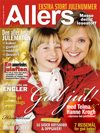 Last week a four page article about her and her project in the most well known of the publications to pick up the story came out. The article can be found in the December 17 Christmas issue of the popular women’s magazine Allers (p50-53). and thus on the shelves of supermarkets around Norway. While my mother was more impressed with the quality of the research and writing in some of the other articles published in smaller magazines elsewhere, it is nice to get this historical issue, the often forgotten story of the thousands of sailors who were the logistical lifeline in the oceans of WWII, onto the pages of a well-read popular magazine. The article focuses mostly on my grandfather’s story and the “war sailors” (krigsseilere) but some mention of my mother’s online project and a link to her online archive is found in the first paragraph.
Last week a four page article about her and her project in the most well known of the publications to pick up the story came out. The article can be found in the December 17 Christmas issue of the popular women’s magazine Allers (p50-53). and thus on the shelves of supermarkets around Norway. While my mother was more impressed with the quality of the research and writing in some of the other articles published in smaller magazines elsewhere, it is nice to get this historical issue, the often forgotten story of the thousands of sailors who were the logistical lifeline in the oceans of WWII, onto the pages of a well-read popular magazine. The article focuses mostly on my grandfather’s story and the “war sailors” (krigsseilere) but some mention of my mother’s online project and a link to her online archive is found in the first paragraph.